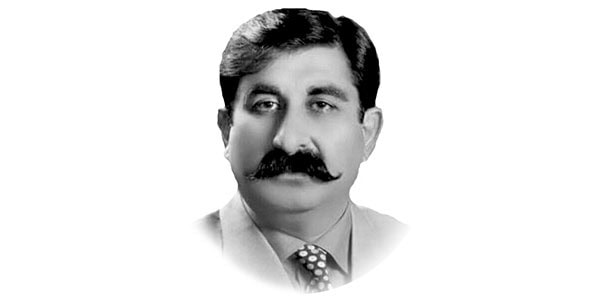Post-Imran’s fall confrontation
TO neutralize the threat posed by party dissidents, the PTI government approached the Supreme Court through a presidential petition, which, among other questions, asked the court if there could be a lifetime disqualification from legislative office for party defectors under Article 63-A, which de-seats a parliamentarian for violating party directives.
That issue is still pending before the judges. As both the joint opposition and the government escalated their efforts to woo the PTI’s coalition partners, electoral calculations once again came into play.
Perceiving the PML-N and PPP as better placed than an increasingly unpopular PTI in the forthcoming general elections, the BAP first joined the ranks of the opposition, followed by MQM-P.
By 28 March, the day the no-trust vote was scheduled, the opposition was confident it no longer needed PTI dissidents to vote Imran out.
Parliament voted no confidence in Imran Khan, in culmination of tension that had been building for some time.
Imran’s opponents, Nawaz Sharif and Bilawal Bhutto Zardari, had long insisted that his victory in the 2018 general election was the result of military interference.
But beyond that shared belief, the two parties differed over ways to oppose Imran’s government; the PPP called for a no-trust vote in the federal parliament while the PML-N vacillated, opting at times to resign from the legislature and at other times to take to the streets in protest.
The Imran government brought its two rivals together by consistently targeting their top leadership through a flawed accountability process overseen by the controversial NAB.
Public anger at the government was growing because of soaring inflation and governance failures.
Politicization of the bureaucracy and interference in policing deprived citizens of basic services and security.
Mr Khan wrongly claims that his visit to Moscow in February, on the day Russia’s attack on Ukraine began – along with his opposition to the U.S.war in Afghanistan – explains U.S. attempts to remove him.
Insisting that Pakistan’s military leadership agrees the U.S.was trying to oust his government, Imran claims as evidence a “threat letter”. Again bluff.
In reality, there was no letter; Pakistan’s then Ambassador to USA had sent a diplomatic cable following his 7 March meeting with the US Assistant Secretary of State for South and Central Asia, but it contained no suggestion that the US wanted to depose the government.
Joe Biden government denied any such intention. But President Vladimir Putin’s government in opposition to USA backed Imran’s allegations, which may lend his foreign conspiracy narrative worrying long-term implications.
Yet Imran appears bent on using it both to undermine the domestic standing of his political opponents now in power and to galvanize his base, including for the forthcoming general elections.
Yet that relationship became increasingly strained when the Prime Minister encroached on the military’s jealously guarded institutional autonomy.
In October 2021, Imran refused to speedily sign off on the military’s nominee for the crucial post of ISI Chief.
He backed down in the end, abandoning efforts to retain his preferred candidate Lieutenant General Faiz Hameed on the grounds that he was best placed to deal with the crisis next door in Afghanistan, and approving the high command’s choice, Lieutenant General Nadeem Anjum.
But the damage was done. With the second three-year stint for army chief Qamar Javed Bajwa, the senior-most military officer, coming to an end in November 2022, the Generals might have thought that Imran would once again try to muscle in a loyalist, this time to the top position.
Though Imran has also called on his supporters to protest peacefully, his political rhetoric increases the risk of political turmoil.
Imran intends to take his fight with the new coalition government led by Shehbaz Sharif of PML-N to the streets as is evident from the en masse resignation of PTI lawmakers, barring dissidents, from the National Assembly on 11 April.
Though Imran insists that his supporters must protest peacefully, his claims of foreign-sponsored regime change and his refusal to accept the legitimacy of the incoming government, together with his track record, give ground for concern.
Imran rejected the results of the 2013 election that brought PML-N into power, claiming that the polls were rigged.
Denying that government’s legitimacy, Imran called upon Nawaz Sharif to resign in advance of new elections.
When the government rebuffed his demands in end-August 2014, Imran abandoned peaceful protests for a confrontation with the government. Imran Khan intends to take his fight with the new government to the streets.
Yet his ability to take on all institutions of the state – the executive, the judiciary and the legislature – at the same time will depend upon his supporters’ staying power.
A coalition government such as Sharif’s, composed of parties with widely differing ideologies, might also find it difficult to reach consensus on key political issues.
Should political confrontation become more violent and the security environment also deteriorate further, the military might once again be thrust into the political fray.
How the new government navigates these minefields will determine whether Pakistan can turn the page on this political crisis and move to a peaceful vote in 2023.
—The Islamabad-based writer is editor, book ambassador, political analyst and author of several books based.










